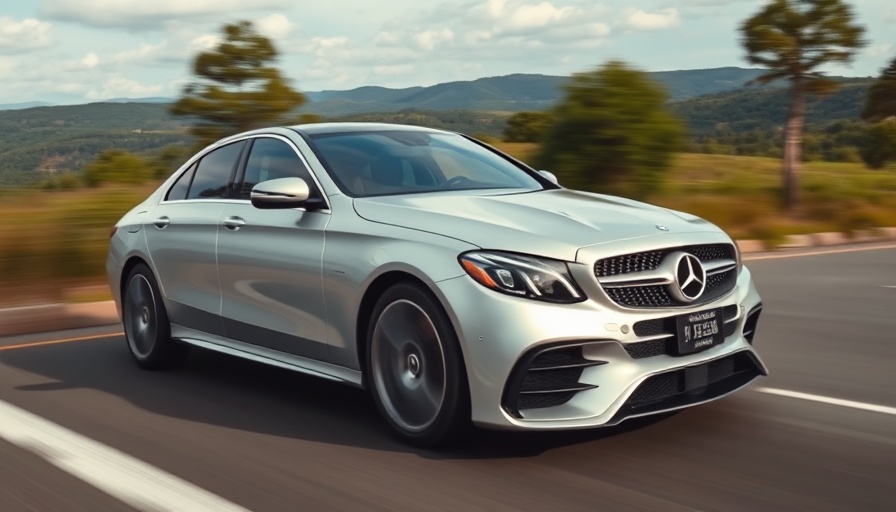
Why the Shift to Four-Cylinder Engines is Stirring Controversy
In an era where performance meets environmental consciousness, automakers are pivoting towards more fuel-efficient technologies. A prime example is the recent shift made by Mercedes-AMG, which has sparked significant discussion among its loyal enthusiast base. With the new C63 S E-Performance, Mercedes has made a bold move; trading the iconic 4-liter biturbo V8 engine for a four-cylinder turbo hybrid. This has led to mixed reactions, with some fans embracing the innovation, while others feel a sense of betrayal.
The Engine Debate: Performance vs. Heritage
The debate surrounding the C63’s engine change highlights a broader phenomenon within the automotive industry: should passion for tradition override the urge for innovation? AMG CEO Michael Shiebe acknowledged this conflict in a recent interview, stating, "We probably could have better explained the technology to our customers." This remark echoes sentiments expressed by both casual fans and die-hard V8 purists who view the four-cylinder engine as a departure from what made AMG so revered. Nonetheless, the 671 horsepower and 752 pound-feet of torque of the new engine setup are impressive—yet numbers alone do not always sway enthusiasts who loved the visceral roar of the V8.
Understanding the Technology Behind the Change
Shiebe pointed out that many customers might need time to appreciate the new turbo-hybrid technology. "It’s important to be open-minded when it comes to technology," he stated, urging fans to give the new system a chance. This suggests a critical disconnect where passion for an older model can blind enthusiasts to the potential benefits of modern technology, especially one focused on sustainability and efficiency.
An Industry-Wide Trend: The Eco-Conscious Shift in Performance Vehicles
The move towards hybrid engines is not isolated to Mercedes-AMG. Major automotive brands are pivoting towards hybridization and electrification of their performance vehicles. Automakers recognize that consumers are becoming more eco-conscious, prompting a shift in what performance means. With impressive torque figures and acceleration, hybrid engines can also deliver on performance while being kinder to the environment. This trend calls into question the long-term future of traditional engines.
Future of AMG: Commitment to Performance and Customer Satisfaction
Shiebe reaffirmed Mercedes-AMG's focus on creating distinct vehicles that resonate with true enthusiasts. He emphasized that future AMG models will be designed to evoke performance emotions whether they are electric or internal combustion. "When you buy an AMG, you buy the performance, the emotion," he stated, highlighting the brand’s commitment to ensuring that any change to their lineup retains the hallmark of excitement.
Taking Feedback Seriously: The Path Forward for Mercedes-AMG
With the backlash surrounding the C63’s release, it seems evident that Mercedes-AMG is listening. Shiebe’s acknowledgment of a communication gap indicates a proactive approach towards addressing customer concerns. In automotive innovation, the first impression can be pivotal. Maintaining open channels for customer feedback can drive future innovations that are more aligned with buyer expectations.
As the automotive landscape continues to evolve towards sustainability, the approach taken by brands like Mercedes-AMG will set important precedents. Understanding this balance between heritage and innovation is essential for both manufacturers and consumers alike. Enthusiasts might need to navigate their emotional attachments to traditional engines while considering the performance and eco-benefits that new technologies offer.
 Add Row
Add Row  Add
Add 




 Add Row
Add Row  Add
Add 

Write A Comment